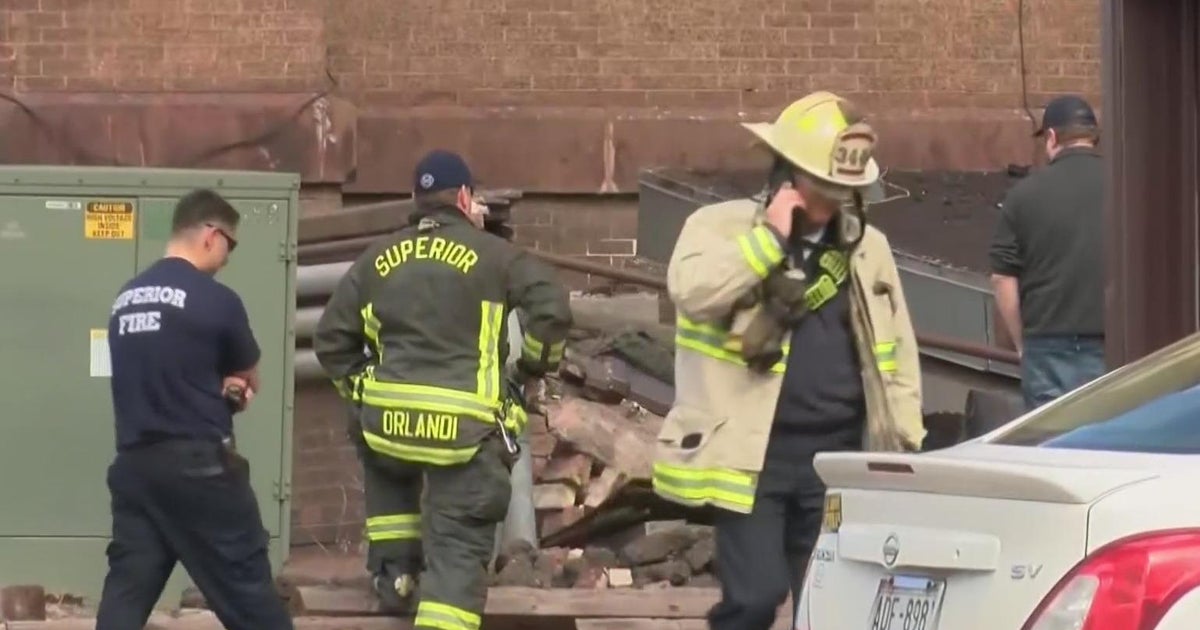Stimulus Check Update: 'Lapse In Payments Going To Force People Deeper Into Debt,' Says Business Prof
(CBS Detroit) -- President Trump signed the $900 billion stimulus package into law a week after receiving it. He used that time to rail against the bill's perceived inadequacies and push for a $2,000 stimulus check, as opposed to the legislated $600. The delay in signing could have profound consequences for the unemployed.
Congress passed the second stimulus on December 21, and the president signed it on the evening of December 27. The day before, an estimated 12 million people saw their unemployment benefits expire. Those people were receiving funds through two programs -- Pandemic Unemployment Assistance (PUA) and the Pandemic Emergency Unemployment Compensation (PEUC) -- set up by the CARES Act. PUA aids unemployed freelance and gig workers. PEUC adds 13 weeks of unemployment benefits onto however many weeks a given state provides (generally around 26 weeks). Those two programs ended on December 26.
>>READ: Stimulus Package Update: When Will The Checks Start Arriving?
The new stimulus package continues PUA and PEUC, and renews the federal unemployment bonus for $300 per week (rather than $600) through the middle of March. But will recipients of unemployment benefits experience a lapse? And what effect will that have on people?
The Labor Department doesn't believe there will be a lapse. But implementation depends on the individual states, which each have their own systems for unemployment benefits. The first time around with the CARES Act, that implementation took weeks in some states. Any delay shouldn't be as long this time, but a delay of at least a week seems likely. The $300 bonus payments, for example, will originate with the Federal Pandemic Unemployment Compensation (FPUC) program, which was created by the CARES Act. They ended in July. Each state would need time to relaunch that program.
On the other hand, $600 stimulus payments are already on their way. The IRS said Tuesday that it had started the direct deposit process, which will continue into next week. The mailing of paper checks begins Wednesday. The distribution is expected to run a little more smoothly than it did in the spring. The agency's "Get My Payment" website, designed for people to check their payment status, is currently offline. It is expected to be available again in a few days.
The payment amount could, in theory, increase to Trump's requested $2,000. The House passed a bill to that effect, but Senate Majority Leader Mitch McConnell blocked a vote in the Senate. He instead put forth a bill that included the $2,000 stimulus along with other issues important to the President. Those issues include the formation of a commission to look into election fraud and the repeal of the social media shield law. Both are likely nonstarters for Democrats.
Trump renewed his request Tuesday after the bill didn't receive a Senate vote.
Any delay of the stimulus, either for checks or the unemployment benefits, will matter for those who are struggling and need the money now. Even in good economic times, many people have trouble keeping up with expenses. According to the Federal Reserve's most recent Report on the Economic Well-Being of U.S. Households, covering 2019 through May of 2020, 37 percent of people would not be able to cover an unexpected expense of $400. They would have to carry a credit card balance or be unable to pay it at all. Almost 30 percent of all adults could not pay their monthly bills in full or were close to not being able.
>>READ: 'Stimulus Checks Are The Least Important,' When Drafting Aid Package, Says Economist
According to Giacomo Santangelo, senior lecturer at Fordham University and term professor at the Stillman School of Business at Seton Hall University, "what we've seen over time is that number is always too many. There are always too many people that an unexpected expense... And let's be realistic. If something is wrong with your car, if something is wrong with your air conditioning, if you have a medical expense, it's going to be more than $400. That's literally it. Because never, at three o'clock in the morning, when you hear a dripping sound, and the plumber has to come out, is it ever less than $400."
Economic well-being numbers encompassing the pandemic to date aren't yet available. But in the last six months, almost 8 million people have sunk into poverty. (The poverty line for a family of four is an annual income of $26,200.) The nation's poverty rate rose from 9.6 percent in June to 11.7 percent in November. That's the most it's increased in a given year in 60 years. And that rise corresponds with the drop in aid from the first round of stimulus. Benefits from the CARES Act ended in July. With the $1,200 stimulus check spent, and no more $600 weekly unemployment bonus, households and individuals took a hit.
"What we know is that a lot more people are not in a position to pay their rent," says Santangelo. "They are not in a position to make normal payments that they already owe. So, one imagines the unexpected expenses are going to take an even larger toll on people. So $300 (the amount of the federal unemployment benefit bonus and about the average state unemployment benefit, which is what PUA and PEUC pay) is a lot of money. $300 is a lot more money than we're giving it credit for. There was a piece talking about this is only just gonna cost people $300. It's only one week, and it's only $300. Okay. That could be the difference between, and then fill in the blank with lots of awful things."
"People have an expectation that they're going to be receiving aid," Santangelo points out. "And the purpose of aid is to smooth consumption. And, again, it is the holiday season, and it's cold in a lot of places that are affected by COVID. If this is about paying your heat, your electricity. If this is about paying your rent. If this is about making car payments and car payments are a determining factor on you being able to get to work. This money was expected. This hurts people's consumption. That will have a ripple effect. It will have a ripple effect on the micro-economic level. The individual consumer will be adversely affected by this. And the economy will be adversely affected."
Those with available credit cards will charge things in the short-term. "The lapse in the payments is going to force people deeper into debt," says Santangelo. "It's going to force consumers deeper into debt. If you look at how terrible the economy was, you will look around in 2020, you will look at how unemployed people there were. There were over 13 million reported unemployed people in the United States of America, which means that, in reality, it was closer to 20 million. And you look at how good retail numbers were in the Christmas holidays. So basically you're telling me people were out of work, and their spending increased. The only way that can happen is if they went further into debt."
"Just because you don't have income coming in, are you not going to buy the toilet paper?" asks Santangelo. "Are you not going to buy the cleaning products? Are you not going to buy the N95 masks. You're still going to spend this money, even though you don't have it."
Last updated Wednesday, December 30 @ 4:15 p.m. ET.



